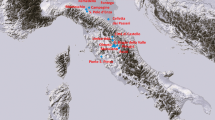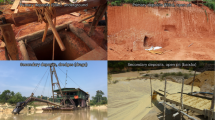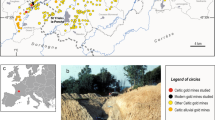Abstract
DR. RICKARD'S letter carries the weight of his high authority on early mining. Yet the estimates of the great gold output from Rhodesia were not made on the London Stock Exchange, but by responsible mining engineers who were well acquainted with the ancient workings. When discussing Telford Edward's estimate with the local authorities in 1905, they expressed the view that his figure would have to be increased owing to the discovery of many additional workings. In view of the size and number of the ancient mines, I felt that the excavation from them of 100 million tons was not exaggerated. The workings are direct evidence of an output of gold which, as Dr. Rickard says, would have made a stir in the world. The discoveries at Ur and in Egypt show that the people of those countries had tons and tons of gold. If the Rhodesian gold mining had been medieval, we should surely have evidence of it in the gold or by tradition.
This is a preview of subscription content, access via your institution
Access options
Subscribe to this journal
Receive 51 print issues and online access
$199.00 per year
only $3.90 per issue
Buy this article
- Purchase on Springer Link
- Instant access to full article PDF
Prices may be subject to local taxes which are calculated during checkout
Similar content being viewed by others
Author information
Authors and Affiliations
Rights and permissions
About this article
Cite this article
GREGORY, J. Early Rhodesian Gold. Nature 125, 47–48 (1930). https://doi.org/10.1038/125047b0
Issue Date:
DOI: https://doi.org/10.1038/125047b0
Comments
By submitting a comment you agree to abide by our Terms and Community Guidelines. If you find something abusive or that does not comply with our terms or guidelines please flag it as inappropriate.



